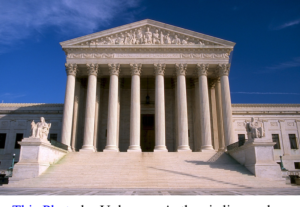In a recent California Court of Appeals ruling, the Court held that a mutually agreed upon meal period waiver entered into between the employee and employer, in advance (or prospectively), is valid, as long as certain conditions are met.
Significance of Court’s Ruling
This ruling provides clarity on the legality of prospective meal period waivers in California, potentially impacting how employers and employees manage work schedules and meal breaks.
The Law
California law, as set forth in Labor Code Section 512, guarantees a 30-minute, off-duty meal period for employees after five work hours and a second meal period after 10 work hours. The law also provides that when an employee completes their work before the start of the 6th hour of work, their legally mandated meal period can be waived. The Industrial Welfare Commission Wage Orders similarly provide for meal periods and their waiver.
However, what has never been decided, until now, is whether the mutual waiver of the meal period can be made in advance so that it is prospectively agreed upon by the employee and employer that the employee may waive their meal period when their work day is completed by the 6 hour of work.
 In Bradsbery v. Vicar Operating, Inc., the Plaintiffs alleged their employer failed to provide them with the meal periods required by the Labor Code and the IWC Wage Orders. The employer asserted Plaintiffs signed a valid written agreement that prospectively waived all waivable meal periods. The Plaintiffs argued that prospective waivers permit employers to circumvent the statutory meal break requirements and deny employees a meaningful opportunity to exercise their right to meal breaks.
In Bradsbery v. Vicar Operating, Inc., the Plaintiffs alleged their employer failed to provide them with the meal periods required by the Labor Code and the IWC Wage Orders. The employer asserted Plaintiffs signed a valid written agreement that prospectively waived all waivable meal periods. The Plaintiffs argued that prospective waivers permit employers to circumvent the statutory meal break requirements and deny employees a meaningful opportunity to exercise their right to meal breaks.
The Court Ruling
The court disagreed with the Plaintiffs and found that “in the absence of any evidence the waivers are unconscionable or unduly coercive” and the language as contained in the waivers met the requirements of the Labor Code, the waivers were valid and enforceable.
Implications
This decision did not address the viability of a prospective 2nd meal period waiver; however, it follows that as long as the same conditions are met as were found to exist here (e.g., the absence of any evidence the waivers are unconscionable or unduly coercive and the required statutory language regarding revocation existed) a 2nd meal period waiver should likely be found enforceable.
Recommendations
Review any meal period waivers that are currently in place and ensure that they contain the language required by the statute including the right to revoke the agreement, in writing, at any time.
This Newsletter is intended as a brief summary of employment law. While every effort has been made to ensure the accuracy of the information contained herein, it is not intended to serve as “legal advice,” or to establish an attorney-client relationship. If additional information is needed on any of the topics contained herein, please contact our office. All rights reserved. ©2025.
